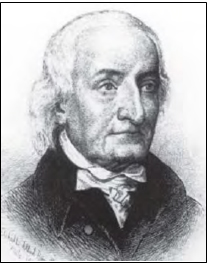 |
||||
|
|
||||
|
|
||
 |
||
| Hugh Williamson was born in Chester County, Pennsylvania,
on December 5, 1735. A doctor, natural scientist, preacher, merchant
and politician, the versatile Williamson was frequently called
the “Ben Franklin of North Carolina.” Graduating in the first class from the College of Philadelphia (later the University of Pennsylvania), Williamson went to Connecticut to study theology. After two years he left the ministry to be a math professor. While teaching, he became interested in medicine, which led him to the University of Edinburgh and studies in London and Utrecht. His poor physical condition led him to contract a fever from one of his patients, abruptly ending his formal career in medicine. His scientific interests and reputation resulted in his appointment as a commissioner to study the transit of Venus (June 3, 1769), and Mercury (November 9, 1769). Afterwards, he published “An Essay on Comets,” for which the University of Leyden awarded him an LL.D. degree. Williamson was an eyewitness to the Boston Tea Party and was the first to carry the news to England. He predicted the colonies’ revolt and learned of the Declaration of Independence while he was in Holland. Upon returning to America, he offered his medical services to Governor Richard Caswell and was sent to New Bern to vaccinate troops against smallpox. He crossed British lines to treat American prisoners of war, as well as the British. Williamson’s work made him a pioneer advocate of inoculation against diseases. Williamson was a town representative for Edenton in the General Assembly of 1782. On May 3, his seat was declared vacant following his election to the Continental Congress in Philadelphia. Williamson took his seat on July 19, 1782. Along with Thomas Jefferson, he was one of only two southern delegates who voted in favor of excluding slavery from the Western Lands Ordinance of 1784. Williamson returned to the North Carolina House of Commons in 1785, representing Chowan County. In 1787, Governor Richard Caswell appointed him to replace Willie Jones at the Constitutional Convention in Philadelphia. Williamson arrived in time for its start and attended the entire convention. He also attended the 1789 state convention in Fayetteville, where delegates finally ratified the Constitution. Williamson spent the last years of his political career in the U.S.. Congress. He served in the United States House of Representatives as a representative from the Edenton and New Bern district from 1789-1793. Williamson then retired to New York City. He wrote one of the nation’s first ecological histories in his two-volume study of North Carolina’s early history, published in 1812. This extraordinary North Carolinian died in 1819. Immediately above comes from Pages 855-856 of the 2005-2006 North Carolina Manual, with minor edits. |
 |
 |
© 2016 - J.D. Lewis - PO Box 1188 - Little River, SC 29566 - All Rights Reserved